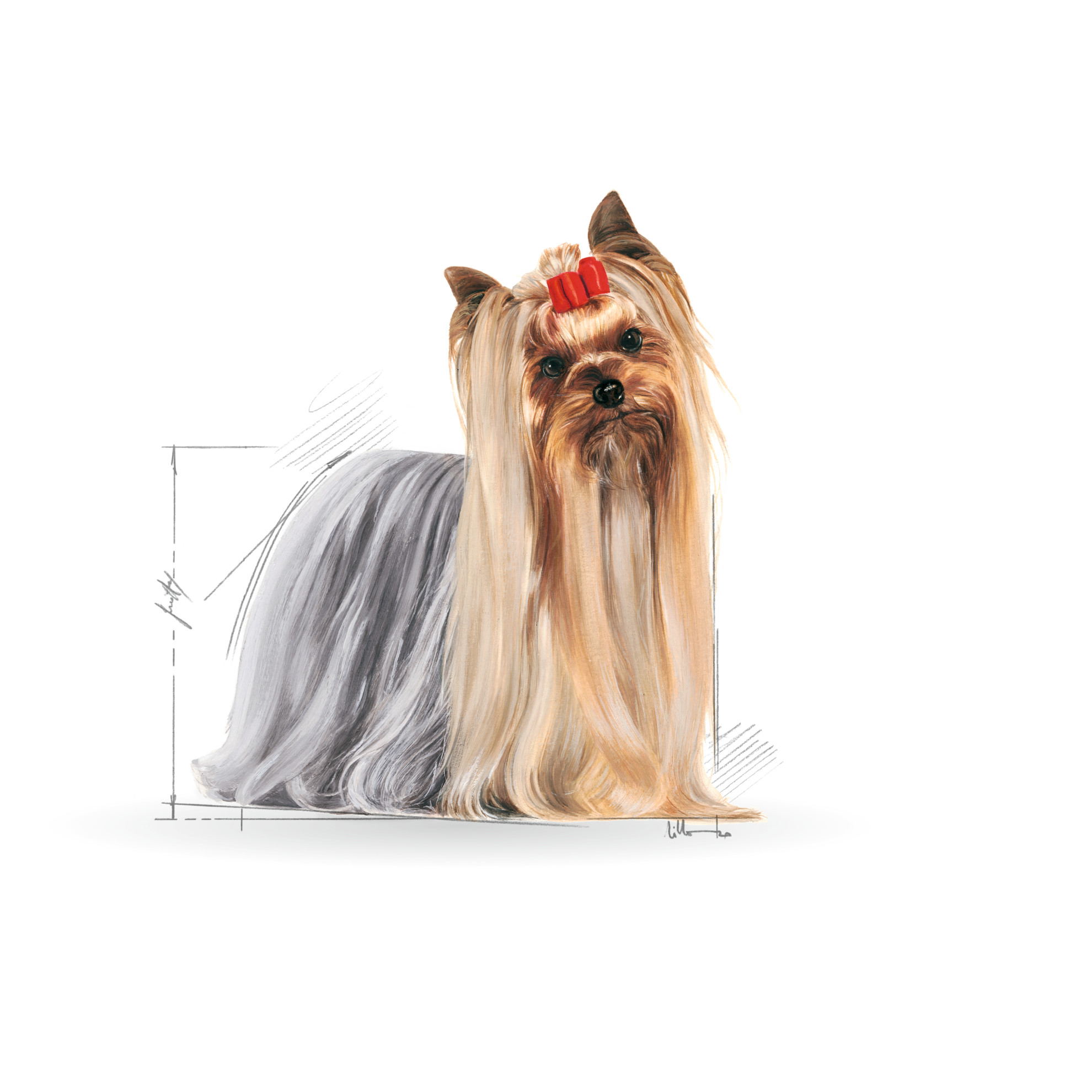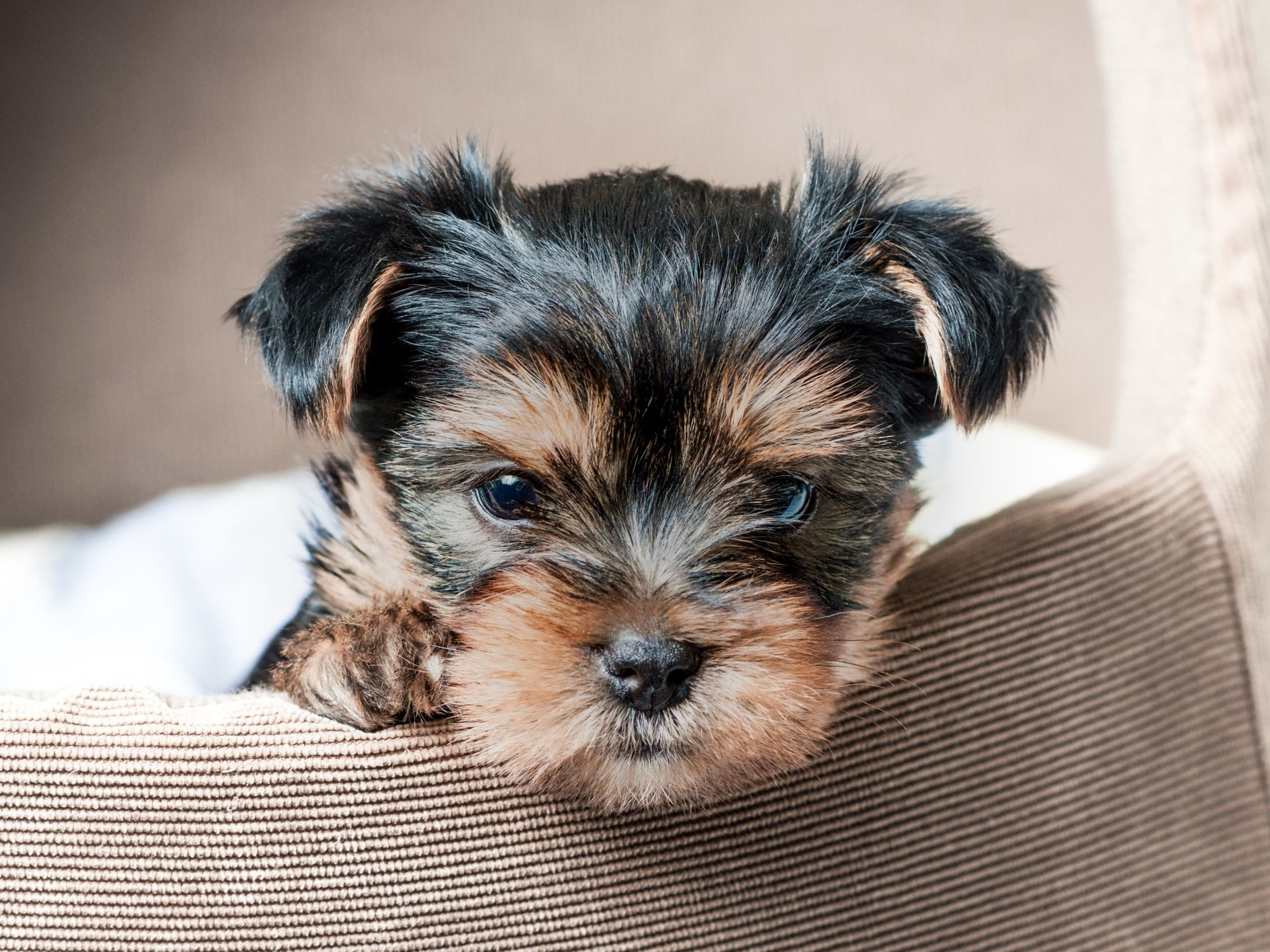Yorkshire Terrier - Breed Facts & Characteristics
Quick stats
|
Avg life span Country of origin Hypoallergenic Group Group section |
Top traits Key facts |

Appearance
|
Weight Height Eyes Ears
|
Coat
Born with a black and tan coat that turns more tan and blue as the breed matures
Face
Flat with not too long of a muzzle. Teeth well placed with even jaws
|
This primarily depends on how they were raised as puppies and whether they were introduced to children from an early age. It will also depend on their level of training and obedience. Like all breeds though, it is always advised that a dog should never be left alone with young children or babies.
Yorkshire Terriers should be fully grown when they are 10 months old. At this point, their weight should not change too much if they're being fed a well-balanced diet with regular exercise.
All Yorkshire Terrier puppies are born with floppy ears which do not stand up. The reason for this is that they do not have the necessary muscle strength at the base of the ear to hold them up. In most cases, these muscles will grow and become stronger over time as your Yorkshire Terrier puppy develops.
This really depends on each individual dog and their physical abilities. As Yorkshire Terriers are small dogs they won't be able to walk the same distance that a larger dog could manage.
Normally, a Yorkshire Terrier puppy will have different colouring compared to an adult which can help you find out their age. Most often there are only four colours which can be found in the breed: black, blue, tan and gold. Yorkshire Terriers are commonly born with a black and tan coat that turns more tan and blue as the breed matures.
The average Yorkshire Terrier lifespan is between 12 to 16 years, though females do tend to live longer than males.
Nutrition

Small jaw

Dental sensitivity

Fussy appetites

Unique skin and coat

Long life spans
Nutrition suitable for all ages
Temperament
Always keen to be part of the action, they are generally best suited to families with older children as they can be feisty at times. Depending on how they are raised as a puppy and with the correct training and nurture in their home environment, many can live peacefully with other dogs, cats and children.
Living with a Yorkshire Terrier
Because of their small size, make sure Yorkies are easily able to access any essentials, such as water and food, especially if they're left alone in the house. It's also important to make sure they're not left unsupervised near areas where they could fall and injure themselves, such as at the top of a staircase.
A Yorkshire Terrier is less likely to do well in a household where it's left alone for most of the day. This is a breed that requires lots of attention and does best when kept near a human companion. If left alone for long periods, they may experience separation anxiety, behavioural issues and develop bad habits.
Common health issues
As with most breeds, Yorkshire Terriers may experience some health concerns over the course of their lifetime. Whilst these health issues may not affect every dog, it's important to know the signs of such concerns and understand where you can take proactive measures to ensure your dog is happy and healthy in every stage of their life.
Support your dog's healthGrooming
Due to their long, silky coat, Yorkshire Terriers require a lot of grooming and daily brushing to remove tangles, dead hairs and to keep their skin and coat in a good condition. However, owners who choose to keep their Yorkshire Terrier's coat short will still need to carry out regular maintenance of their dog's coat.
Training

Start training early

Reinforce good behaviour

Stay committed
Exercise
A short walk every day will be enough to meet their fitness needs and keep them in good shape. Alongside physical exercise, you should also consider how to mentally stimulate your dog which is just as important in maintaining their wellbeing. Engaging in daily games and activities, indoors and outdoors, can help your Yorkie's mind stay active throughout their life.





Balanced puppy nutrition
Maturing from an adult to a senior
Ageing will impact their lifestyle and how much they are able to do, so you may notice some form of reluctance when it comes to exercise, which is often due to stiffer joints. It's essential to make sure your ageing dog is kept as comfortable as possible to ease any joint pains they may develop.